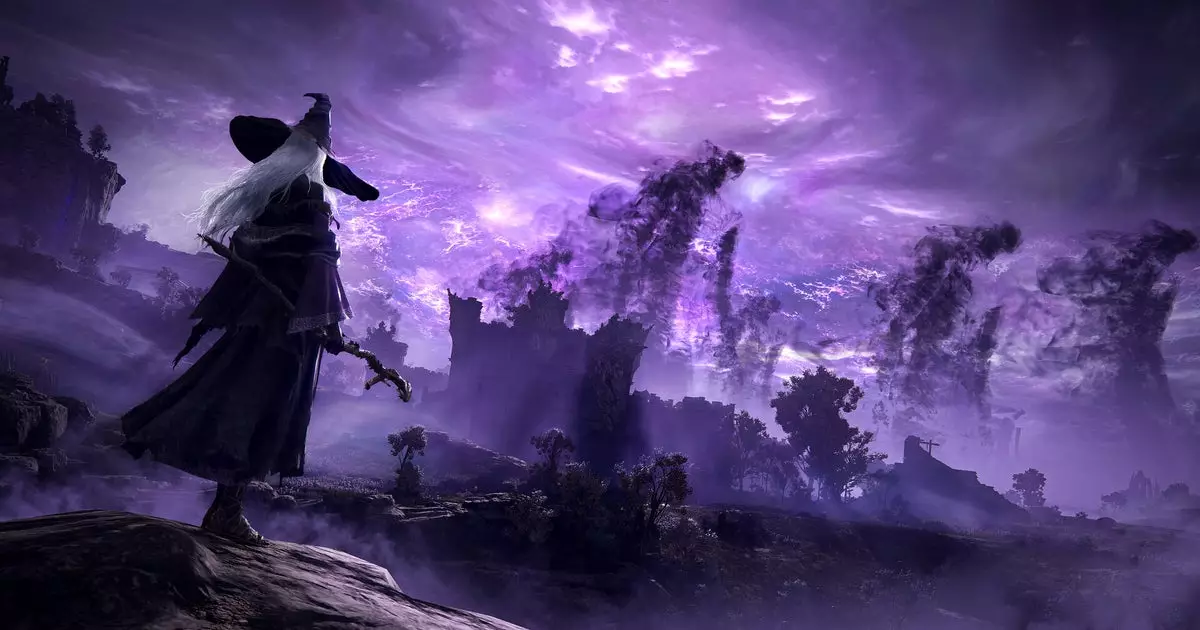Nostalgia and high expectations often accompany the release of updates or sequels in beloved gaming franchises. Last week, FromSoftware managed to ignite fervor among fans with the announcement of a new Elden Ring game titled “Elden Ring: Nightreign.” However, the glow of anticipation quickly dimmed for some, particularly those who were looking forward to a traditional single-player experience after the reveal depicted a bold shift towards cooperative gameplay. This article will dissect the innovative elements of Nightreign and examine its potential impact on the franchise and genre.
In contrast to the hallmark single-player narrative of the original Elden Ring, Nightreign presents players with eight preset characters to embark on a cooperative adventure. As they traverse a reimagined Limgrave map, players engage with various lesser enemies while gearing up for successive boss battles at the close of each 15-minute in-game day. This unique time restriction ties into the concept of survival amidst a nefarious weather system, reminiscent of the battle royale genre where stakes become higher as night falls. Each player’s journey culminates in confronting one of eight formidable bosses, reflecting a strategic yet expedited playstyle.
The design choices reflect a keen observation of the dedicated player base’s tendency to optimize their experience. Unlike casual gaming, Nightreign acknowledges the speedrunning ethos prevalent within the community, showcasing a blend of tailored difficulty, instantaneous matchmaking, and immersion. The deeper lore connections to the broader FromSoftware universe—including nods to Dark Souls 3’s Nameless King—offer an intricate layering that speaks to the franchise’s rich history.
One of the highlights of Nightreign is its emphasis on replayability, which counters initial concerns regarding having a singular map and limited chapters. With each round spanning three days and dynamic map alterations—from terrain hazards to the appearance of fan-favorite bosses like Margit the Fell Omen—the game encourages players to return time and again. This innovative approach not only revitalizes familiarity but also promotes discovery and adaptability, crucial elements for maintaining player engagement in multiplayer environments.
Despite the game’s focus on cooperative play, the developers ensure that it can also be enjoyed solo. However, one must consider the implications of such a design decision. While solo players will encounter scaled-down difficulty and the absence of intrusive PvP activities, they might still feel a sense of imbalance. The lack of features tailored for solo adventurers, such as Spirit Ash summons that aid in combat, raises questions about the experience crafted for those who prefer to navigate the treacherous world alone. Without access to traditional gameplay mechanics, players may find themselves at a disadvantage and discouraged from exploring what Nightreign has to offer.
In an era where live service models dominate the gaming landscape, FromSoftware has made a strategic decision to maintain Nightreign’s integrity as a complete package. Junya Ishizaki, the game director, has underscored that all content will be available immediately upon purchase, labeling Nightreign as a standalone experience without the pressures of continuous expansion or additional monetary investment for unlocking new content. This is a refreshing direction that could foster a strong connection with a player base increasingly wary of monetization strategies that bleed them dry.
Yet, the emphasis on co-op could pose a hurdle for fans of traditional single-player mechanics. While the focus on social gaming is resonant with current community trends, it also risks alienating those who thrive within the solitary confines of FromSoftware’s meticulously crafted worlds. The balance of providing engaging content for both multiplayer enthusiasts and single-player purists will be a defining challenge going forward.
Despite the reservation among purists and the shift towards co-op gameplay, it’s crucial to remember that FromSoftware is known for its willingness to take risks. As Ishizaki mentioned, there’s no definitive plan for multiple co-op spin-offs stemming from Nightreign. This openness to exploration leaves room for potential solo-focused titles or unique gameplay experiences that could reestablish traditional narratives.
Elden Ring: Nightreign embodies a bold step into cooperative gaming while retaining elements that longtime fans cherish. Though its implications for solo players might create a divide in opinions, the innovative mechanics and design choices signify a promising evolution in the franchise. The balance of community needs versus player experience will serve as a litmus test for future FromSoftware offerings. With the gaming world watching, only time will tell if Nightreign can truly resonate and stand the test of time in the pantheon of beloved franchises.

